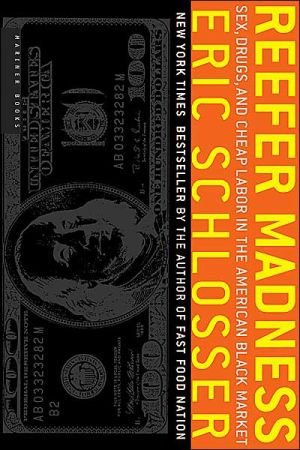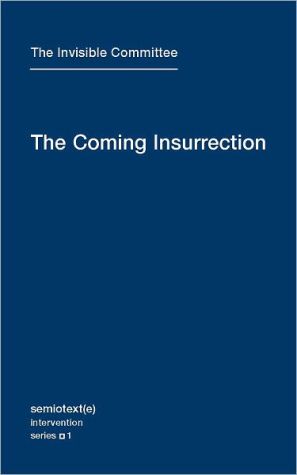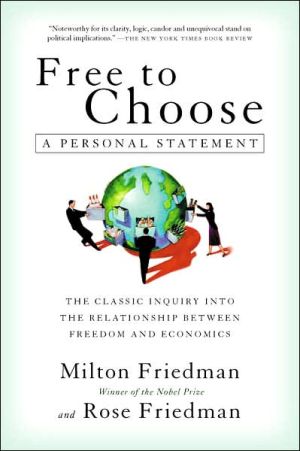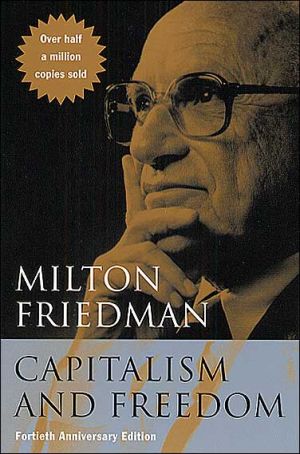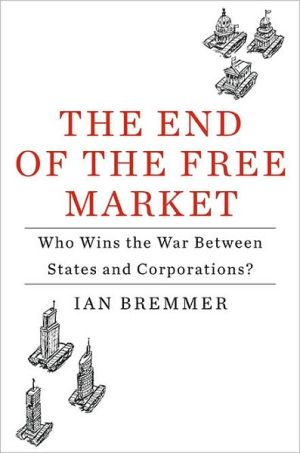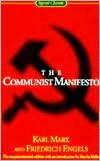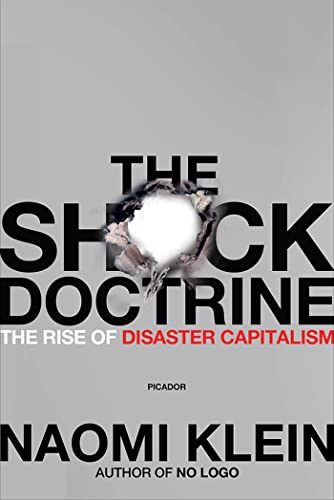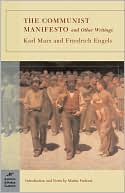Reefer Madness: Sex, Drugs, and Cheap Labor in the American Black Market
America’s black market is much larger than we realize, and it affects us all deeply, whether or not we smoke pot, rent a risqué video, or pay our kids’ nannies in cash. In Reefer Madness the best-selling author of Fast Food Nation turns his exacting eye on the underbelly of the American marketplace and its far-reaching influence on our society. Exposing three American mainstays—pot, porn, and illegal immigrants—Eric Schlosser shows how the black market has burgeoned over the past several...
Search in google:
In his latest book of investigative journalism, Schlosser author of Fast Food Nation) presents three central players of the American black market—pornography, pot, and illegal immigrants—based on research he carried out for articles in Rolling Stone and the Atlantic Monthly. Writing in terrifically engaging prose, Schlosser details the business practices, schemes, criminal records, lifestyles and/or victimization of those involved, and relates the history of each enterprise, the role played by the US war on drugs and the process of US immigration, and the impact on the nation of the underground economy. Annotation ©2003 Book News, Inc., Portland, OR The Washington Post Schlosser attacks this big theme with admirably thorough reporting and a refreshingly clear, no-nonsense writing style. — Philippe Bourgois
THE UNDERGROUND\ Adam Smith believed in a God that was kind and wise and all-powerful. The \ great theorist of the free market believed in Providence. "The happiness of \ mankind," Smith wrote, "seems to have been the original purpose intended by \ the Author of nature." The workings of the Lord could be found not in the \ pages of a holy book, nor in miracles, but in the daily, mundane buying-and- \ selling of the marketplace. Each purchase might be driven by an individual \ desire, but behind them all lay "the invisible hand" of the Divine. This invisible \ hand set prices and wages. It determined supply and demand. It represented \ the sum of all human wishes. Without relying on any conscious intervention \ by man, the free market improved agriculture and industry, created surplus \ wealth, and made sure that the things being produced were the things people \ wanted to buy. Human beings lacked the wisdom, Smith felt, to improve \ society deliberately or to achieve Progress through some elaborate plan. But \ if every man pursued his own self-interest and obeyed only his "passions," \ the invisible hand would guarantee that everybody else benefited, too. \ Published in 1776, The Wealth of Nations later had a profound \ effect upon the nation born that year. The idea that "life, liberty, and the \ pursuit of happiness" were unalienable rights, endowed by a Creator, fit \ perfectly with the economic theories of Adam Smith. "Life, liberty and estate" \ was the well-known phrase that Thomas Jefferson amended slightly for the \ Declaration of Independence. The United States was the first country to \ discard feudal and aristocratic traditions and replace them with a republican \ devotion to marketplace ideals. More than two centuries later, America's \ leading companies—General Motors, General Electric, ExxonMobil, \ Microsoft, Wal-Mart, Boeing, et al.—have annual revenues larger than those \ of many sovereign states. No currency is more powerful than the U.S. dollar, \ and the closing prices on Wall Street guide the financial markets of Tokyo, \ London, Paris, and Frankfurt. The unsurpassed wealth of the United States \ has enabled it to build a military without rival. And yet there is more to the \ U.S. economy, much more, than meets the eye. In addition to America's \ famous corporations and brands, the invisible hand has also produced a \ largely invisible economy, secretive and well hidden, with its own labor \ demand, price structure, and set of commodities. \ "Black," "shadow," "irregular," "informal," "illegal," "subterranean," "u \ nderground"—a variety of adjectives have been used to describe this other \ economy. Although defined in numerous ways, at its simplest the American \ underground is where economic activities remain off the books, where they \ are unrecorded, unreported, and in violation of the law. These activities range \ from the commonplace (an electrician demanding payment in cash and failing \ to declare the payment as income) to the criminal (a gang member selling \ methamphetamine). They include moonlighting, check kiting, and fencing \ stolen goods; street vending and tax evading; employing day laborers and \ child laborers; running sweatshops and chop shops; smuggling cigarettes, \ guns, and illegal immigrants; selling fake Rolexes, pirating CDs. Economists \ disagree about the actual size of the underground economy and how to \ measure it. Some studies look at the discrepancy between the amount of \ personal income declared on tax returns and the amount of money that is \ actually spent. Other studies examine changes in currency supply, the \ velocity of money, levels of electricity usage. Each of these methodologies \ has its merits. All have produced conclusions that are debatable. There is \ general agreement, however, on two points: America's underground economy \ is vast—and most of its growth occurred in the past thirty years. \ Any estimate of illegal economic activity is bound to lack \ precision, since it attempts to quantify things that people have carefully tried \ to hide. Nevertheless, the best estimates convey a sense of scale and \ proportion. In 1997 the Austrian economist Friedrich Schneider calculated the \ rise of America's "shadow economy" by tracing changes in the demand for \ currency. According to Schneider, in 1970 the size of the underground was \ between 2.6 and 4.6 percent of America's gross domestic product (GDP). By \ 1994 it had reached 9.4 percent of the GDP—about $650 billion. Using a \ different methodology in 1998, Charles Rossotti, the commissioner of the \ Internal Revenue Service, told Congress that during the previous year \ Americans had failed to pay about $200 billion of federal taxes that were \ owed, an amount larger than the government's annual spending on Medicare. \ Assuming an average federal tax rate of 14 percent, that means Americans \ somehow neglected to report almost $1.5 trillion in personal income. The IRS \ estimate did not include undeclared earnings from criminal activity. \ Two other periods in modern American history were marked by \ thriving underground economies. From 1920 to 1933, the prohibition of \ alcohol led to widespread trafficking and the rise of organized crime. At the \ height of Prohibition, Americans spent about $5 billion a year on alcohol \ (roughly $54 billion in today's dollars). This black market constituted about 5 \ percent of the U.S. gross national product at the time. When Prohibition \ ended, some bootleggers became well-respected businessmen. During the \ Second World War, the imposition of rationing and price controls created \ even larger black markets. A system designed to distribute scarce \ commodities fairly had some unanticipated effects: a burgeoning trade in \ ration books and a hidden cash economy. Perhaps 5 percent of the nation's \ gasoline and 20 percent of its meat were soon bought and sold illegally. \ According to one estimate, by the end of the war Americans were failing to \ report as much as 15 percent of their personal income. The underground \ subsided amid the prosperity of the Eisenhower era. Wages increased, tax \ evasion decreased, and no illegal commodity generated the sort of profits \ once supplied by bootleg alcohol. And then at some point in the mid- to late \ 1960s the underground economy began to grow. Conservative economists \ point to high income tax rates and excessive government regulation as the \ fundamental causes. Liberals contend that declining wages, unemployment, \ union busting, and the business deregulation of the Reagan years were much \ more responsible for shifting economic activity underground. The \ explanations offered by the left and the right are not mutually exclusive. A \ stagnant economy prompted Americans of every background to work off the \ books. The hippie counterculture of the 1960s and the anti-tax movement of \ the late 1970s shared common ground in their dislike of government, \ encouraging defiance of the IRS. A new drug culture provided new \ opportunities for organized crime. The expansion of America's underground \ economy over the last thirty years stemmed not only from economic hardship \ and a desire for illegal profits, but also from a growing sense of alienation, \ anger at authority, and disrespect for the law. \ During roughly the same period similar phenomena occurred \ throughout the western industrialized world. The underground economy of the \ European Union may now be larger than that of the United States. Years of \ high unemployment, high tax rates, illegal immigration, and widespread \ disillusion with government have created enormous undergrounds. According \ to Friedrich Schneider's estimates, these shadow economies range in size \ from an estimated 12.5 percent of GDP in Great Britain to an estimated 27 \ percent of GDP in Italy. Countries that were once part of the Soviet Union \ have even larger black markets. In Estonia the underground is now \ responsible for an estimated 39 percent of GDP; in Russia, for an estimated \ 45 percent; in Ukraine, for an estimated 51 percent. The underground is \ sometimes the most vibrant sector of these transition economies, the place \ where free enterprise has finally bloomed. But in many ways the growth of \ black markets in the developed world represents a step backward. An \ expanding underground economy is often associated with increased \ corruption and a greater disparity in wealth. For years government officials \ and members of the Communist Party secretly profited from the Soviet \ Union's "second economy," offering services and commodities unavailable \ through the mainstream. The largest undergrounds are now found in the \ developing world, where governments are corrupt and laws are routinely \ ignored. In Bolivia the underground economy is responsible for an estimated \ 65 percent of GDP. In Nigeria it accounts for perhaps 76 percent. \ The U.S. dollar now serves as the unofficial currency of this new \ global underground. During the late 1960s and early 1970s American \ economists began to notice that the amount of currency in circulation had \ grown much larger than the amount ordinary citizens were likely to use in \ their everyday transactions. The discovery led to the first inklings that an \ underground economy was emerging in the United States. While business \ publications heralded the advent of a cashless, credit-based economy, the \ use of banknotes quietly soared. The $100 bill soon became the underground \ favorite, not just in the United States, but overseas as well, thanks to its high \ face value and the relative stability of the dollar. During the late 1970s the \ outflow of currency from the United States averaged about $2 billion a year. \ By the 1990s, about $20 billion in U.S. currency was being shipped to foreign \ countries every year. Today approximately three-quarters of all $100 bills \ circulate outside the United States. \ The supremacy of the dollar in the global underground has proven \ a boon to the American economy. The outflow of U.S. currency now serves, \ in essence, as a gigantic interest-free loan. Every time the U.S. Treasury \ issues new banknotes, it purchases an equal value of interest-bearing \ securities. Those securities are liquidated only when the currency is taken \ out of circulation and put into a bank. In 2000 the U.S. Treasury earned an \ estimated $32.7 billion in interest from its banknotes circulating overseas. \ The 1996 redesign of the $100 bill was partly motivated by fears that Middle \ Eastern counterfeiters had created a convincingly real $100 bill, a "supernote" \ that might threaten the role of U.S. currency in unofficial transactions. The \ latest threat to the $100 bill comes not from organized crime figures, but from \ the central bank of the European Union. The new 500-euro note is perfect for \ black market activity. It has roughly five times the value of a $100 bill, \ allowing drug dealers and smugglers to lighten their suitcases. Portugal has \ banned the 500-euro note for those reasons, and its acceptance in other \ foreign undergrounds is not yet certain. \ The three essays in this book shed light on different aspects of \ the American underground—and on the ways it has changed society, for \ better or worse. "Reefer Madness" looks at the legal and economic \ consequences of marijuana use in the United States. Pot has become a \ hugely popular black market commodity, more widely used throughout the \ world than any other illegal drug. The enforcement of state and federal laws \ regarding marijuana guides its production, sets the punishments for its users, \ and suggests the arbitrary nature of many cultural taboos. Americans not \ only smoke more marijuana but also imprison more people for marijuana than \ any other western industrialized nation. \ "In the Strawberry Fields" examines the plight of migrant workers \ in California agriculture, who are mainly illegal immigrants. The state's \ recruitment of illegals from Mexico started a trend that has lately spread \ throughout the United States. Many employers now prefer to use black \ market labor. Although immigrant smuggling looms as a multi-billion-dollar \ business in its own right, the growing reliance on illegals has far-reaching \ implications beyond the underground, affecting wages, working conditions, \ and even the practice of democracy in the rest of society. \ "An Empire of the Obscene" traces the history of the pornography \ industry through the career of an obscure businessman and his successors. \ It describes how a commodity once traded only on the black market recently \ entered the mainstream, turning behavior long thought deviant into popular \ entertainment. Profits from the sale of pornography that used to be earned by \ organized crime figures are now being made by some of America's largest \ corporations. The current demand for marijuana and pornography is deeply \ revealing. Here are two commodities that Americans publicly abhor, privately \ adore, and buy in astonishing amounts. \ Linking all three essays is a belief that the underground is \ inextricably linked to the mainstream. The lines separating them are fluid, not \ permanently fixed. One cannot be fully understood without regard to the \ other. The vastness and complexity of the underground challenge the \ mathematical certainties of conventional economic thinking. Hard numbers \ suddenly appear illusory. Prices on Wall Street rise or fall based on \ minuscule changes in the rate of inflation, the unemployment rate, the latest \ predictions about the GNP. Billions of dollars may change hands because an \ economic measurement shifts by one-tenth of a percent. But what do those \ statistics really mean, if 20 percent, 10 percent, or even 5 percent of a \ nation's economy somehow cannot be accounted for? America's great \ economic successes of the past two decades—in software, \ telecommunications, aerospace, computing—are only part of the story. \ Marlboro, Camel, and Philip Morris are familiar names, and the tobacco \ industry is one of the most powerful lobbies in Washington, D.C. But \ Americans now spend more money on illegal drugs than on cigarettes. \ The proper role of the state and the proper limits on the free \ market are central themes of this book. The political system of the United \ States and the economic system proposed by Adam Smith are ostensibly \ dedicated to freedom. Since 1776 Americans have been willing to fight and to \ die for freedom. You will search long and hard to find an American who thinks \ freedom is a bad thing. The question that has been much more difficult to \ answer is: Freedom for whom? Should the government be protecting the \ freedom of workers or employers? Of consumers, or manufacturers? Of the \ majority who live one way, or the minority who choose to live differently? In \ the abstract, freedom is always easy to celebrate. But adherence to that lofty \ ideal seems impossible to achieve. Despite the best of libertarian intentions, \ giving unchecked freedom to one group usually means denying it to another. \ What happens in the underground economy is worth examining \ because of how fortunes are made there, how lives are often ruined there, \ how the vicissitudes of the law can deem one man a gangster or a chief \ executive (or both). If you truly want to know a person, you need to look \ beyond the public face, the jobs on the résumé, the books on the shelves, \ the family pictures on the desk. You may learn more from what's hidden in a \ drawer. There is always more to us than what we will admit. If the market \ does indeed embody the sum of all human wishes, then the secret ones are \ just as important as the ones that are openly displayed. Like the yin and \ yang, the mainstream and the underground are ultimately two sides of the \ same thing. To know a country you must see it whole. \ \ Copyright © 2003 by Eric Schlosser. Reprinted by permission of Houghton \ Mifflin Company.
The Underground11Reefer Madness112In the Strawberry Fields753An Empire of the Obscene109Out of the Underground211Afterword: More Madness223Notes241Bibliography303Acknowledgments313Index315
\ From Barnes & NobleThe Barnes & Noble Review\ In Fast Food Nation, Eric Schlosser changed how we look at a hamburger with a scathing narrative that featured descriptions of hazardous butchering facilities and exploited minimum-wage workers. This latest book promises to do the same with the way we think about, if not use, marijuana, handpicked fruit, and pornography. In a series of essays, Schlosser examines the United States' underground economy, or black market, which in his estimate represents as much as 10 percent of the nation's gross domestic product. He illustrates how mandatory drug sentencing not only fails to diminish substance abuse but also results in nonviolent pot growers serving more time than killers. He depicts the hardscrabble existence of California's largely illegal immigrant strawberry pickers, some of whom sleep in caves just a few miles away from affluent homes. And he observes that some of the largest profits from the pornography go to the hotel-owning conglomerates that rake it in from in-room pay-per-view charges. As a whole, the collection comes off as a compendium of Schlosser's earlier magazine articles rushed into book form (indeed, much of the book was published originally in Atlantic Monthly, Rolling Stone, and U.S. News & World Report), but it is an eye-opening read from an author who has the magical ability to make us think. Katherine Hottinger\ \ \ \ \ The New York TimesSchlosser's argument walks a difficult, winding path. Porn, he says, should be made legal across the board, and pot as well. Both actions would throw light upon the darkness of the black market and thus reduce America's gross national pretense of virtue. At the same time, though, he writes, ''All those who now consider themselves devotees of the market should take a good look at what is happening in California. Left to its own devices, the free market always seeks a work force that is hungry, desperate and cheap.'' Which is true enough. As Schlosser smartly notes: ''The sort of black market labor once narrowly confined to California agriculture is now widespread in meatpacking, construction and garment manufacturing. The growth of the underground has lowered wages, eliminated benefits and reduced job security in these industries.'' — Sam Difton\ \ \ Time MagazineSchlosser isn't attacking the pot industry here; he's going after the institutional hypocrisies that force it underground while leaving far more damaging practices, like the abuse of migrant workers, to fester openly. What ties Reefer Madness together is Schlosser's passionate belief that America is deeply neurotic, a nation divided against itself into a sunny, whitewashed mainstream and a lusty, angry, deeply denied subconscious. He just might be the shrink America needs. — Lev Grossman\ \ \ \ \ The Los Angeles TimesAt its most compelling, Reefer Madness is a great, muckraking ride. There's no hype in Schlosser's prose. Instead, he lets a cascade of facts make his points. — Emily Bazelon\ \ \ \ \ The Washington PostSchlosser attacks this big theme with admirably thorough reporting and a refreshingly clear, no-nonsense writing style. — Philippe Bourgois\ \ \ \ \ Publishers WeeklyFrom the bestselling author of Fast Food Nation comes this captivating look at the underbelly of the American marketplace. In three sections, Schlosser, an Atlantic Monthly correspondent, examines the marijuana, migrant labor and pornography trades, offering compelling tales of crime and punishment as well as an illuminating glimpse at the inner workings of the underground economy. The book revolves around two figures: Mark Young of Indiana, who was sentenced to life in prison without parole for his relatively minor role in a marijuana deal; and Reuben Sturman, an enigmatic Ohio man who built and controlled a formidable pornography distribution empire before finally being convicted of tax evasion, after beating a string of obscenity charges. Through recounting Young's and Sturman's ordeals, and to a lesser extent, the lives of migrant strawberry pickers in California, Schlosser unravels an American society that has "become alienated and at odds with itself." Like Fast Food Nation, this is an eye-opening book, offering the same high level of reporting and research. But while Schlosser does put forth forceful and unique market-based arguments, he isn't the first to take aim at the nation's drug laws and the puritanical hypocrisy that seeks to jail pornographers while permitting indentured servitude in California's strawberry fields. Nevertheless, this is a solid-and timely-second effort from Schlosser. As world events force Americans to choose values worth fighting for, Schlosser reminds readers, "the price of freedom is often what freedom brings." Copyright 2003 Reed Business Information.\ \ \ \ \ Library JournalAtlantic Monthly correspondent Schlosser made a muckraking splash with Fast Food Nation: The Dark Side of the All-American Meal (an LJ Best Book of 2001). He continues to extend the investigative reporting tradition in this episodic expos of America's black economy. In turn, he takes on the (now largely domestic) marijuana business, California big agriculture's reliance on Mexican migrant workers, and the adult video and bookstore industry. Schlosser follows one specific story within the wider framework of his subjects, and the first one, about a hapless pothead whose incompetent ambition and pride got him a life sentence, is as compelling a read as any thriller. From there the energy flags somewhat; brevity would have better served the tale of one innovative pornographer's rise and fall. Still, even when piling it on, Schlosser has produced a provocative book-this despite a certain na vet in the author's claims about the innocence of pot and porn, both of which he favors fully legalizing. Even dedicated civil libertarians with a bacchanalian bent might argue that recreational drugs and commercial sex provide greater opportunities for exploitation and violence than Schlosser admits into evidence. On balance, however, this book is essential for all public and academic libraries. [Previewed in Prepub Alert, LJ 1/03.]-Scott H. Silverman, Bryn Mawr Coll., PA Copyright 2003 Reed Business Information.\ \ \ \ \ Kirkus ReviewsThe journalist who gave us the bestselling Fast Food Nation (2001) now investigates selected aspects of that nation’s underground economy. Practitioners of subterranean economics, CD pirates, gun smugglers, check kiters, and tax cheats comprise--but don’t account for--a huge part of our gross domestic product, states Schlosser, admitting that neither he nor anybody else is quite sure exactly how huge it is. Three disparate essays demonstrate how the off-the-books world thrives with pot, porn, and poor farmworkers. First, the author considers marijuana’s history in America and our government’s frequently ambivalent, always cynical attitude toward it. Marijuana farming, indoor and al fresco, is a major cash crop, especially in the heartland. Judging from these interviews, lots of stand-up folk are in the business . . . or in the clink. Schlosser recommends decriminalizing recreational use while keeping it illegal to supply dope, but he doesn’t fully explore how fostering legal demand for illegal supplies would work. Another significant cash crop, handpicked strawberries, keeps Mexican pickers and California growers in a symbiotic embrace, so long as the pickers stay migrant and undocumented. Farm operators insulate themselves with sharecroppers and middlemen. The underpaid, overworked pickers are defenseless, and the author suggests little to help beyond piercing the operators’ free-market cover. He then turns to the free market of pornography, which feeds nice profits to blue-chip corporations as well as dirty old men. In its present state, the industry was the brainchild of one Ruben Sturman, the Disney of Porn, whose lifelong battle with the Feds is engagingly reported. Lots of dirtypictures and nasty books would evaporate, pornographer Larry Flint suggests, if the reformers would just withdraw. Until then the illicit economy flourishes. Schlosser’s pieces remain stubbornly disparate, though individually they make fine reading. Three kinds of muck, raked by an adroit reporter. Author tour\ \
